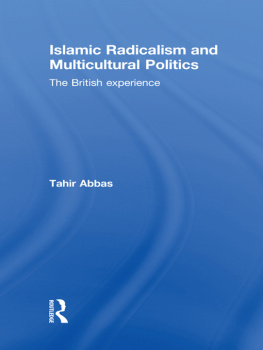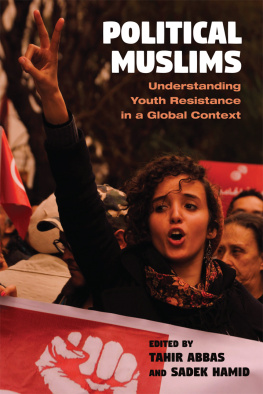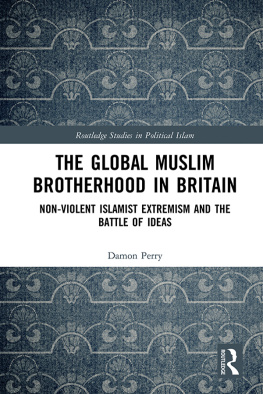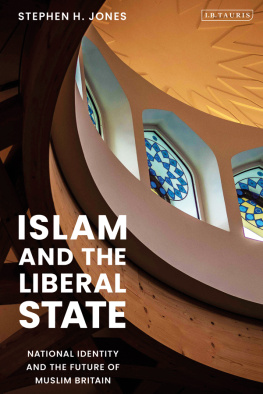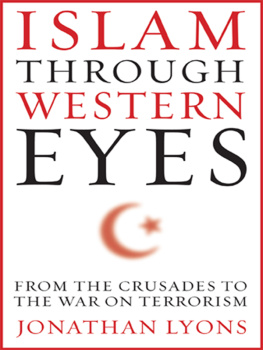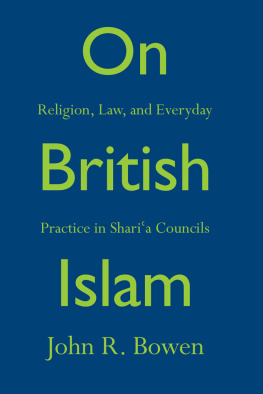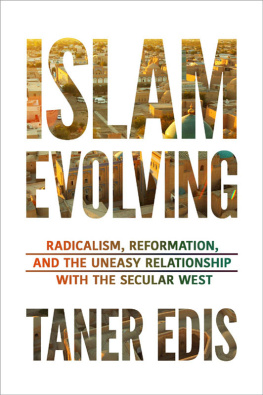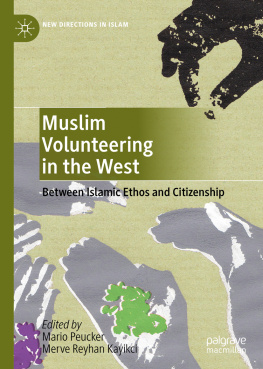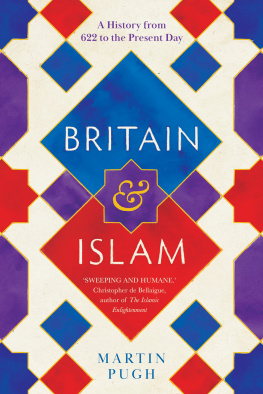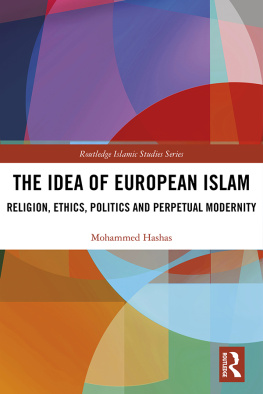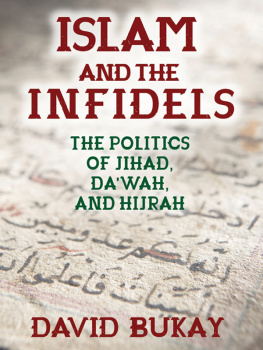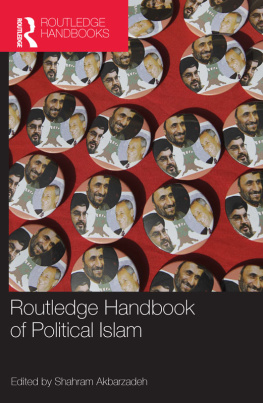Islamic Radicalism and Multicultural Politics
The manifestation of an Islamic political radicalism in Britain has been one of the most dramatic developments in recent times. Islamic Radicalism and Multicultural Politics explores the nature of this phenomenon by analysing the origins of Islam, its historical contact with Western Europe and Britain, and the emergence of an Islamic political radicalism in the Muslim world and in diaspora communities in the West. Tahir Abbas draws on historical analysis and contemporary case studies to explore the post-war immigration and integration of Muslim groups, the complex relations that exist between a secular neo-liberal Britain, a diverse but multifaceted political and cultural Islam, and the extent of social and economic inequalities that affect Muslims as individuals and citizens in local area communities. He shows how violent extremism among British Muslims is in reality influenced by a range of issues, including the processes of globalisation and contemporary politics, media, culture and society. Examining and dissecting the approaches to public policy, Abbas offers suggestions for tackling the major social, cultural, political and economic questions facing British Muslims in the post-7/7 era. An important contribution to the study of religion, race and ethnicity in modern Britain, this accessible work will be of interest to those working in the fields of sociology, ethnic studies, Islamic studies and political science, as well as policy-makers and practitioners.
Dr Tahir Abbas BSc(Econ) MSocSc PhD FRSA, is currently Associate Professor of Sociology at Faith University in Istanbul.
First published 2011
by Routledge
2 Park Square, Milton Park, Abingdon, Oxon, OX14 4RN
Simultaneously published in the USA and Canada
by Routledge
270 Madison Ave, New York, NY 10016
Routledge is an imprint of the Taylor & Francis Group, an informa business
2011 Tahir Abbas
Typeset in Times New Roman by Glyph International Ltd
Printed and bound in Great Britain by TJ International Ltd.,
Padstow, Cornwall
All rights reserved. No part of this book may be reprinted or reproduced or utilised in any form or by any electronic, mechanical, or other means, now known or hereafter invented, including photocopying and recording, or in any information storage or retrieval system, without permission in writing from the publishers.
British Library Cataloguing in Publication Data
A catalogue record for this book is available from the British Library
Library of Congress Cataloging in Publication Data
A catalog record for this book has been requested.
ISBN 978-0-415-57224-8 (hbk)
ISBN 978-0-415-57225-5 (pbk)
ISBN 9781136959592 (ebk)
Acknowledgements
The study of Muslims in Britain and in Western Europe is more significant and topical than ever. This is especially the case since the geopolitical developments at the end of the Cold War and the rise of Islamic fundamentalism as a counter-hegemonic anti-capitalist discourse. Interest in Islam and Muslims has been compounded by the experience of violence, counter-ideology, misrepresentation and the misrecognition of the religion, culture, politics and its people. It has occurred in an increasingly interdependent world where negative media and political discourses are never far from the construction of this other, minority or majority, at home or abroad.
There has been considerable writing and commentary on the subject of Islam in the West, including the radicalisation of young Muslims, but there is a lack of study on the relations between Muslims and non-Muslims in Western European nation-states set in an economic, sociological and cultural context. The current project is not just about history, international relations, politics and theology (although they are an important part of the explanations behind the causes and solutions to radicalism), it relates also to aspects of the local, national and international that shape British Muslim experiences in the light of wider shifts to post-Cold War geopolitical and ethno-cultural relations between Islam and the West. After decades of research and writing there is a great deal that remains unclear about Muslims and Islam, especially in relation to social research and policy issues pertaining to minorities in Britain and in Western Europe. This book attempts to take the reader from the inception of a British Islamic community to current sociological, political and philosophical concerns that affect the understanding of Muslim minorities in Britain today. It is an analysis rooted in a study of the historical detail of the nature of Muslim minority communities as well as an evaluation of the economic, social, cultural and political dynamics of the lived experience in relation to issues of identity politics, radicalism, modernity, law, citizenship and multiculturalism.
I began writing the book in early 2005 as an analysis of the issues of identity and politics impacting on Muslims in Britain given the terrorist attacks in Madrid and the murder of Theo van Gogh in Amsterdam, both in 2004. With the events of 7/7 in London occurring soon after, there emerged a particular dimension to the study, one that invariably added considerable emphasis to the question of how it is possible to arrive at the phenomenon of the home-grown, made in Britain, Muslim terrorist. Questions in relation to this event and subsequent issues of Muslim minority engagement, representation and participation have concerned academics, activists, think-tanks, policy-makers, theologians, community groups and political figures. Written by a social scientist educated within a secular liberal Western European scientific tradition, methodologically this analysis is historical and sociological. It incorporates a participant-observation and reflexive ethnographic account of the experiences of British Muslim minorities, combined with a detailed conceptual and theoretical analysis of the nature of communities in the light of the post-9/11 and post-7/7 social and political world using case studies.
To a significant degree, I have lived the experience of being a British Muslim and the challenges and opportunities that emerge as a second-generation minority stepping between cultures. As to my ontological and epistemological position, as a social scientist and a British-born South Asian Muslim, I believe in a set of moral codes that dictate how I relate to others in any given context, and with any Muslim or non-Muslim. As a radical, I am a progressive liberal who believes that religions are only relevant if they continue to advance their application to current social concerns, striving to make faith germane to the needs of the world today. Suffice to say, I have an appreciation of life in the West as well as of the religion of Islam, and this scholarly project is argued to be a logical and reasonable account, based on the use of social science tools of analysis and interpretation. I am not an Islamic scholar per se, rather I am a Muslim social scientist who studies individuals, groups, institutions and societies in context. Readers are left to make up their own minds about its intellectual, political and spiritual impact.
Throughout the time I spent researching and writing this book, I was able to meet and engage with a number of highly regarded philosophers, scholars, researchers, mentors and friends, and they shaped my thinking and writing throughout, directly and indirectly. They include Muhammad Anwar, Ziauddin Sardar, Akbar S. Ahmed, Yasir Suleiman, Tariq Ramadan, Musharraf Hussain, Sheikh Ibrahim Mogra, Muhammad A.S. Abdel Haleem, John L. Esposito, Steven Vertovec, Jrgen S. Nielsen, Ceri Peach, James Piscatori, Carole Hillenbrand, John Rex, Frank Reeves, Franois Burgat, Nasr Abu Zayd, Jochen Blaschke, John R. Bowen, Yayha Michot, Sally Tomlinson, Mirtn Mac an Ghaill, David Marsh, Ash Amin, Stuart Croft, Scott Poynting Farhan Nizami, Waqar I.U. Ahmad, Samina Yasmin, Tariq Modood, Khurshid Ahmed, Anas Al Shaikh Ali, Mehri Niknam, Talip Kkcan, Gareth Stansfield, Sajjad Rizvi, Salma Yaqoob, Nafeez Mosaddeq Ahmed, Sayyed Nadeem Kazmi, Arun Kundnani, H.E. Hellyer, Iftikhar Malik, Yunus Samad, Virinder Kalra, Humayun Ansari, Peter Sanghera, Aftab Ahmed Malik, Yayha Birt, Ed Hussain, Amir Saeed, Gabrielle Marranci, Mohammad M. Idriss, Ross Abbinnett, Rajinder Kumar Dudrah, Malcolm Dick and Jahan Mahmood. I also thank Nusrat Shaheen and Alex Hall for their support on a project on Islamophobia carried out at the University of Warwick in 1997. I am grateful to Baroness Kishwer Falkner of Margravine and Lord Nazir Ahmed of Rotherham for launching at the House of Lords my previous two edited collections in this area, as well as their continuous support ( Muslim Britain in 2005 and Islamic Political Radicalism in 2007). I also thank the authors who made the two books possible, and those who made the trip to the Moses Room each time to speak about their contributions and to engage in lively debate. I thank Sir David Logan, former British Ambassador to Turkey, and Sir Francis Richards, former Governor of Gibraltar and former Head of Government Communications Headquarters, for the opportunities to work with them at the University of Birmingham. I also thank the many civil servants in Whitehall who were able to provide me with an insider perspective on policy. Dr Maleeha Lodhi, formerly High Commissioner for Pakistan in London, has remained an ardent supporter. Her ideas of enlightened moderation remain important in defining the relations between Islam and the West.

